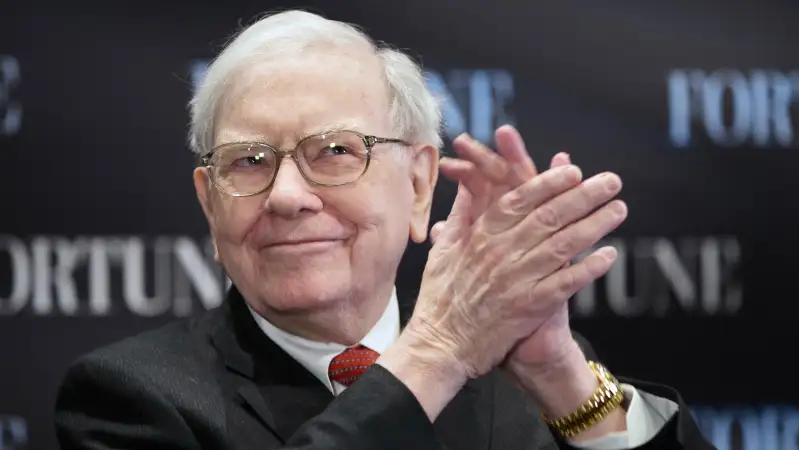The Guy Who Made a $1 Million Bet Against Warren Buffett
Money is not a client of any investment adviser featured on this page. The information provided on this page is for educational purposes only and is not intended as investment advice. Money does not offer advisory services.

Warren Buffett bet a prominent U.S. hedge fund manager in 2008 that an S&P 500 index fund would beat a portfolio of hedge funds over the next ten years. How's it going?
"We're doing quite poorly, as it turns out," president of Protege Partners Ted Seides, who made the bet with Buffett, told Marketplace Morning Report today. In fact, an S&P 500 fund run by Vanguard rose more than 63%, while the other side of the wager, a portfolio of funds that only invest in hedge funds, has only returned 20% after fees.
The fees are the important component. When the two sides made their respective cases for why they would win, Buffett noted that active investors incur much higher expenses than index funds in their quest to outperform the market. These costs only increase with hedge funds, or a fund of hedge funds, thus stacking the deck even more in his favor.
"Funds of hedge funds accentuate this cost problem because their fees are superimposed on the large fees charged by the hedge funds in which the funds of funds are invested," Buffett argued at the time. "A number of smart people are involved in running hedge funds. But to a great extent their efforts are self-neutralizing, and their IQ will not overcome the costs they impose on investors."
Before fees, Seides's picks would be up 44%—still almost twenty percentage points behind Buffett, but way ahead of where they are.
Seides, to his credit, has been transparent. "Standing seven years into a 10-year wager with Warren Buffett, we sure look wrong," he wrote in a recent blog post for CFA Institute. He went on to cite the Federal Reserve, both for its decision to keep interest rates at basically zero and undertake an unconventional bond-buying program to jumpstart the economy in the wake of the Great Recession, as one reason why his portfolio has been so roundly beaten by the S&P 500. Of course, investors inability to consistently foresee and time major market events is one reason why index funds are so powerful. (He also points out that a broad stock market index fund is a poor measuring stick for hedge fund performance.)
There's still three years left in the bet, but barring a prolonged stock market crash, Girls Incorporated of Omaha—Buffett's charity of choice—seems well placed to win. (The size of that donation stands right now at more than $1.5 million, for reasons having to do with zero-coupon bonds.) Those who are inclined to support passive investing, like Money, can be satisfied that once again indexes trumped active traders.
Now here's the thing: Seven years ago, Seides' chances of winning this bet actually weren't so terrible. Cheap index funds have a strong statistical edge over active managers, but that doesn't mean every stock picker loses. Last December, S&P Dow Jones Indices published "The Persistence Scorecard," which measures whether outperforming fund managers in one year can continue to outperform the market going forward. "Out of 681 funds that were in the top quartile as of September 2012, only 9.8% managed to stay in the top quartile at the end of September 2014," according to the report. While that's not a terribly good record, about 10% of portfolio managers (and their shareholders) think that they are clever investors.
The trouble is, they probably won't be in the top 10% of investors over the next ten years. There will always be market beaters, even if just by random (and unfortunately unpredictable) chance. That fact goes a long way towards keeping money managers in business.
So when you hear a hot-shot alpha investor type say that he's beaten the market over the last couple of years, just remember: Stuff happens.
